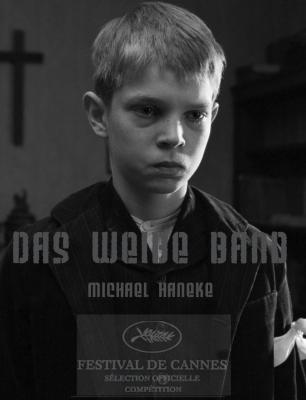 The White Ribbon (Michael Haneke, 2009)
The White Ribbon (Michael Haneke, 2009) Strange events happen in a small village in the north of Germany during the years just before World War I, which seem to be ritual punishment. The abused and suppressed children of the villagers seem to be at the heart of this mystery.
Nominated for Best Foreign film at the Oscars, winner of the Palme d'or at the Festival de Cannes in 2009, winner of the Best Foreign film at the Golden Globe Das Weisse Band (The White Ribbon) is the obvious choice for the predictions of the winner of its category at the Academy Awards. Praise by international critic, mostly european, because Haneke is better apreciated in the old World. Known for Caché, The Piano Teacher, Funny Games and Time of the Wolf Haneke is always near horror, thriller, psychological drama and always on the dark side of humans. I really like his films even if I haven't seen enough of them, Funny Games is an experience in itself.
Das Weisse Band depicts a story narrated by the school teacher of a small village in Germany at the dawn of the Great War. Many crimes are committed in the village and the hypocrite villagers are too afraid to denounce anyone. We follow the school teacher, the reverend's family, the baron's family and the family of a servant. In all these families there are hidden shame, inner problems, and the presence of teenagers. While the story takes place and goes on we suspect everyone of the crimes committed. The story is very dense and reminded me of the great films of Ingmar Bergman especially his Fanny och Alexander.
On the directing side, the images are shot in a classy and pure black and white. The images even felt too pure and it was probably done intentionally to disturb the viewer. The camera doesn't move a lot and when it does it goes slowly as Dreyer's Ordet. The composition of the images are as amazing as Ordet too. Haneke directs here with the hand of a master. He let the scenes flow and he's not afraid of long scenes where the caracters go out of the camera and come back later in the same shot. At some point it reminded me of Andrei Tarkovsky's style of contemplative cinema without being too distant.
All these elements with an amazing ensemble cast that offers righteous performances gives us one of the best film of 2009. It took third place in my Top 10 of the year! This is the kind of film that is not gonna feel old in 30 years like the films of Dreyer, Tarkovsky, and Bergman because they all bring something unique, intense, grand, and immortal to films.

No comments:
Post a Comment